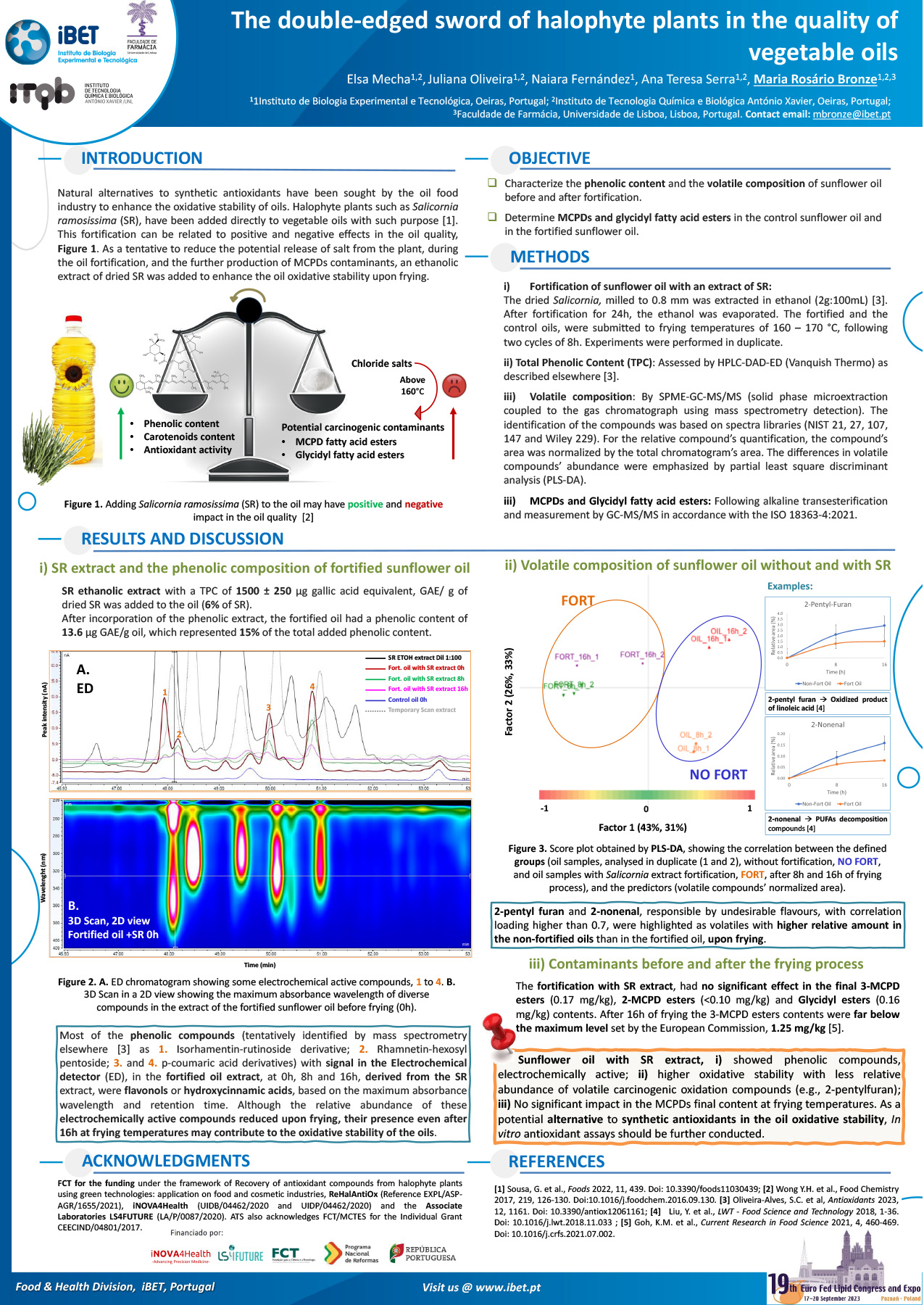The food oil industry has been seeking to improve the oxidative stability of vegetable oils using natural alternatives to synthetic antioxidants. Due to the halophytes’ bioactive composition (e.g., phenolic compounds and carotenoids), dried plants, such as Salicornia ramosissima, has been applied directly in the vegetable oils with positive effects in the phenolic content and antioxidant activity of the fortified oil [1]. Nevertheless, the halophytes are salt tolerant plants that accumulate in their roots, shoots and leaves, minerals like sodium and potassium. In the presence of chloride salts the contaminants fatty acid esters 3-MCPDEs, 2-MCPDEs and GEs, which are known carcinogenic compounds, can be formed at high temperatures during the frying process [2]. To reduce the potential release of salt from the plant, during the oil fortification, and the further production of MCPDs contaminants, in the present study the sunflower oil was fortified with an ethanolic extract of Salicornia ramosissima. Both fortified and control oil, without fortification, were submitted to frying temperatures of 160 – 170 °C, following two cycles of 8h. The oil samples were analysed by GC-MS for identification and relative quantification of volatile compounds responsible by the lipid oxidation (aldehydes) and frying unpleasant off-notes. Multivariate data analysis by partial least square analysis (PLS-DA) showed a clear separation between fortified and non-fortified oils after the frying cycles. By comparison with the control non-fortified oils, the ones fortified with Salicornia showed lower relative intensity of volatile compounds derived from lipid oxidation (e.g., 2-nonenal). Before further future recommendations more studies with different halophyte species regarding the positive and deleterious impact of adding halophytes to the vegetable oil and its quality are being developed.
Acknowledgments:
The authors acknowledge the funding provided FCT under the framework of Recovery of antioxidant compounds from halophyte plants using green technologies: application on food and cosmetic industries, ReHalAntiOx (Reference EXPL/ASP-AGR/1655/2021), iNOVA4Health (UIDB/04462/2020 and UIDP/04462/2020) and the Associate Laboratories LS4FUTURE (LA/P/0087/2020). ATS also acknowledges FCT/MCTES for the Individual Grant CEECIND/04801/2017.
References
[1] Sousa, G.; Alves, M.I.; Neves, M.; Tecelão, C.; Ferreira-Dias, S. Enrichment of sunflower oil with ultrasound-assisted extracted bioactive compounds from Crithmum maritimum L. Foods 2022, 11, 439.
[2] Goh, K.M.; Wong, Y.H.; Tan, C.P.; Nyam, K.L. A summary of 2-, 3-MCPD esters and glycidyl ester occurrence during frying and baking processes. Curr Res Food Sci. 2021, 4, 460-469.
